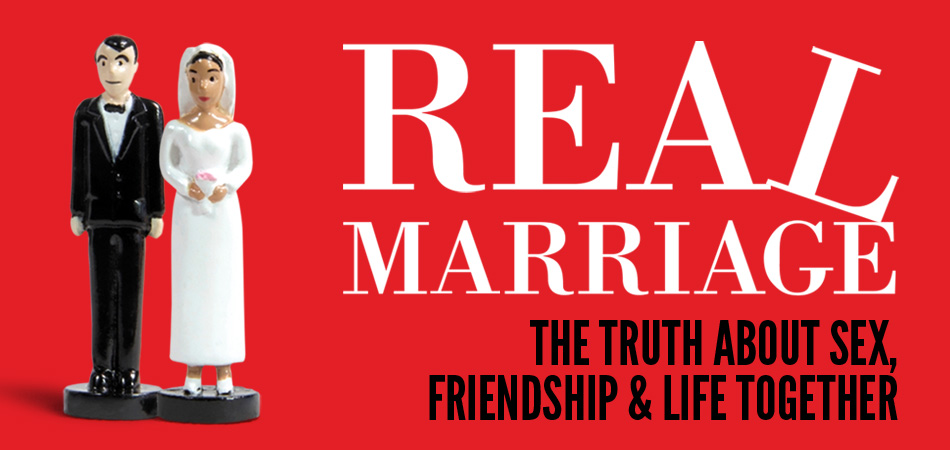[note: this post inspired some swearing]
This chapter seems to be laying all the necessary groundwork for the last chapter in the “Sex” section of the book, and from the title (“Can We ____?”) I’m guessing that’s the one that caused some of the firestorm around it. Honestly, unless he does something drastic in that last chapter, I’m going to be a little confused as to why people were so bothered, since he hasn’t said too much at this point that I haven’t heard echoed in plenty of other corners.
But, I think “Can We ___?” Is going to finally define what Mark means by “having sex freely,” since this chapter focuses on the “frequency” half of his definition of a healthy sex life. If you’re having sex a lot, and you’re having it “freely,” you’re golden in Mark’s book.
There are two over-arching problems with this chapter: he does not address communication in any form until he’s nine pages into the chapter, and then he only really talks about it for a single paragraph. The second problem is that while he’s couched most of the discussion in this chapter in gender-neutral terms (you, spouse, they, him or her, etc), the vast majority of the potential bars to a “healthy” sex life he address are typically considered female problems, and his attempt to make it seem as though he’s being “gender neutral” falls flat.
Obviously I don’t agree with the gendered way most evangelicals talk about sex. Women are just as visual as men. Women can want sex more often than their male partners. Gender and sex don’t matter anywhere near as much as the people in the relationship and what they want– which is a fantastic reason for why communication is so important. Evangelicals like to assume a lot of things based on nothing more than their Western, American, White Supremacist conceptualizations of gender.
However, while Mark is superficially trying to get away from that by using gender-neutral terms, he can’t get away from the fact that he really hates women:
She was a virgin on her wedding night and had grown up in a fairly religious home … She had some anxiety regarding their first night together that made her body tense up … As a result, they were unable to experience intercourse and without putting in too much effort to overcome their obstacle, she instead gave him a helping hand …
He felt embarrassed … that they had intercourse so infrequently that she usually experienced discomfort, as her body had not adjusted to being sexually active. (156)
See what happens? That she’s having problems overcoming the messages of purity culture is all her fault. It’s not “their” problem– it’s her problem. Also, Mark is working under one of the worst lies of our culture: that people with vaginas will experience pain during penetration until they get used to it, which is total bullshit.
The rest of the chapter has a similar focus; for example, in a list of “Ways we are Selfish Lovers,” six out of the nine ways are typically associated with women– like “letting ourselves go” (165-66). Considering that Mark blamed Gayle Haggard for her husband’s adultery because of this very reason, he’s made it clear that he thinks this is something that women struggle with.
So those are the two big over-arching problems of this chapter, so now I’d like to address some of the more particular ones.
On page 160, we run into yet another way that they minimize abuse:
Foxes in our vineyard for me (Grace [referring to Mark’s behavior]) include name-calling, strong language … using discouraging words …
This really breaks my heart for Grace. She’s been married to an abuser for so long and has been taught to see his abuse as normal. Not necessarily acceptable, but normal. Another problem with this whole section is that Grace gets six lines to talk about Mark’s verbal abuse while they dedicate twenty-two to Mark ranting about how he hates it that Grace isn’t as punctual as he is, and Grace acknowledging that this was a “sin issue.”
Because verbal abuse and different perspectives of “being on time” are totally the same thing. By the way, Mark has not once referred to any of his abuse as a “sin issue.” He’s exclusively talked about other people having sin issues, or Grace has talked about her own.
Another big problem is when Mark uses I Corinthians 7:3-5 (the “you don’t have authority over your own body” passage) to support the argument of this chapter. I don’t have the space to talk about why this way of thinking is a problem, so instead I’ll direct you to these resources:
“A World Without Consent” by Jeff Eaton.
“I Belong to Me: Learning Agency and Consent Outside Christianity” by Dani Kelley
Sarah Moon‘s series You Are not Your Own.
Honestly, passages like that one are the biggest reasons why I have problems with the “high view of Scripture” perspective, because I read things like “The wife does not have authority over her own body, but the husband does; and likewise the husband does not have authority over his own body, but the wife does” and everything inside of me starts screaming run away. Also fuck this bullshit starts repeating on an endless loop. I’ve read the arguments that this is a passage about mutuality and such, but I don’t find that a compelling enough explanation to get around “you do not have authority over your own body.” Because to me, there’s no way for this not to be incredibly harmful and dangerous.
Anyway, I’d appreciate all ya’ll thoughts on that passage, cause I got nothin.
The last and most glaring problem with this chapter is that there is not a single word about consent. Not a single one. In fact, he does something worse than not talking about it:
People have explained this [referring to putting in “too little effort”] as a gross feeling, where their spouses simply lie there, looking away disinterested and disconnected, making them feel as if they are basically using their spouses’ bodies.
Aish. I’m writing this in a Starbucks, or the book would have gone flying. Instead I just sat and stared into space while the red faded from my vision.
People: if you are having sex with someone and this is their reaction, you are probably having sex with someone who is disassociating. There are many reasons why someone might respond that way, but the biggest one would be you are raping them. And these people fucking know that— they feel “gross” and like they’re doing something wrong. Because they are. Because we know that having sex with an unresponsive person is a fucking bad idea.
Anyway. This chapter was bad. I don’t have high hopes for the next one.










